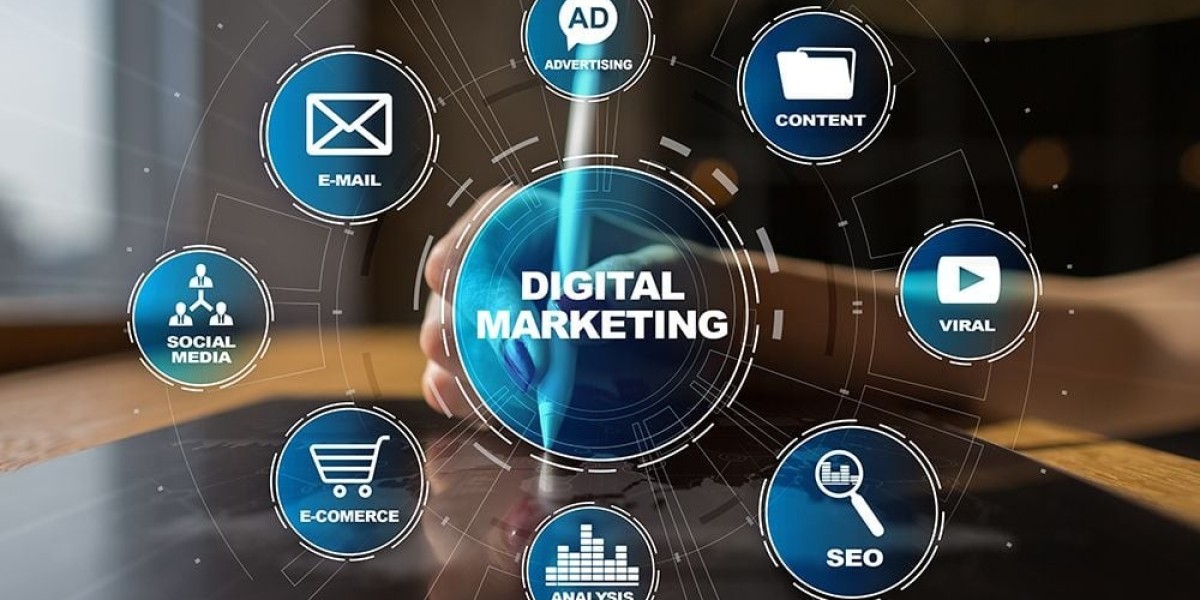Digital marketing refers to the use of digital channels to promote products. Digital marketing, often known as online marketing, uses the internet to promote and connect firms with potential customers. It comes in various forms, including:
Search engines Websites
Social Media
Email and mobile apps
Texting and web-based advertising
Digital marketing applies the same ideas as traditional offline marketing, but in a digital environment. It uses consumer data to identify a company's target demographic and offer the most relevant messages possible. This is successful, but because digital marketing is so widespread, the most difficult task nowadays is figuring out how to stand apart.
Your company's model determines how it uses digital marketing. B2B enterprises sell to other businesses, necessitating a lengthier, more strategic strategy. B2C enterprises sell directly to ordinary people, necessitating shorter sales cycles and a broader audience.
The key differences between B2B and B2C are:
B2B decisions require several persons, whereas B2C decisions usually involve only one person. B2B clients typically take longer to make decisions, therefore digital marketing should prioritise relationship building. Because the B2C purchasing process is typically shorter, this need immediate, urgent messaging. B2B transactions are more logical than B2C transactions, which are more emotional. Fortunately, digital marketing applies to both ways. Whether you're targeting businesses or consumers, digital marketing may help you expedite the marketing process and get results.
Pros of Digital Marketing:
Cost-effective: Compared to traditional marketing, digital marketing is substantially less expensive. With digital marketing, firms can reach a larger audience on a less expense. at example, social media platforms enable firms to access a big audience at little or no expense.
Targeted Advertising: Digital marketing allows businesses to tailor their advertising to a specific audience. This means businesses may target their message to those who are most likely to be interested in their product or service. Targeted advertising allows firms to save money by not advertising to people who aren't interested in their products.
Greater Reach: Digital marketing enables businesses to reach a larger audience than traditional marketing. The internet allows businesses to reach individuals all over the world. This means that firms can grow their customer base and revenue.
Real-Time Marketing: With digital marketing, organisations can adapt to market changes in real time. They can tailor their tactics to capitalise on emerging trends or respond to shifts in client behaviour. This helps firms stay competitive and relevant.
Measurable Results: Digital marketing produces measurable results that are easy to track. Businesses may see how many individuals watched their ad, clicked on it, and turned into customers. This enables firms to optimise their marketing for better outcomes.
Personalisation: Digital marketing enables businesses to tailor their message to each unique customer. This makes the message more relevant and interesting, increasing the likelihood of conversion. Personalisation can also help firms strengthen their client ties.
Access to Data: Digital marketing gives organisations access to valuable data. They can track how clients interact with their website, what material they view, and what things they buy. This data can be utilised to optimise advertising and enhance the customer experience.
Cons of Digital Marketing:
Competition: Due to the low entrance barrier, digital marketing has become a crowded and competitive space. This makes it harder for firms to differentiate themselves and reach their intended audience. It also implies that firms must constantly adapt and innovate to stay ahead of the competition.
Ad Fatigue: With so many advertisements displayed online, people can easily feel bored with advertising. This means that firms must develop innovative ways to engage their target audience while avoiding being perceived as spammy or obtrusive.
Privacy Concerns: Digital marketing can pose privacy concerns, particularly around the gathering and use of personal data. Customers may be reticent to share information with businesses, making it difficult for them to provide personalised experiences.
Technical Complexity: Digital marketing necessitates a certain amount of technical understanding and proficiency. To succeed, businesses must keep up with the latest technologies and trends. Businesses without the necessary resources or skills may struggle to keep up.
Fragmented Audiences: With so many channels and platforms available, audiences are becoming more fragmented. This means that businesses must launch many efforts to attract their intended demographic, which may be time-consuming and expensive.
Limited Offline Reach: While digital marketing can reach a large audience, it has limitations in terms of reaching individuals who are not online. This means that businesses must continue to employ traditional marketing strategies to reach specific groups.
Lack of Personal Touch: While personalization is a benefit of digital marketing, it can also be a drawback. Some clients may want a more personalised experience, such as face-to-face engagement. Digital marketing can make it difficult to build relationships with customers in the same way that traditional marketing can.
Conclusion:
Pros and Cons of Digital Marketing offers numerous benefits, including cost-effectiveness, targeted advertising, measurable outcomes, increased reach, real-time marketing, personalisation, and access to vital data. However, it has some drawbacks, including competitiveness, ad fatigue, privacy concerns, technical complexity, fragmented audiences, limited offline reach, and a lack of personalisation.
Ultimately, whether digital marketing is a suitable fit for a firm will be determined by its goals, resources, and target audience. While digital marketing may not be the perfect solution for every business, it can be a powerful tool for those willing to put in the time and effort to make it work. As the field of digital marketing evolves, organisations will need to stay up to date on the latest trends and technology in order to be competitive. This allows them to reap the numerous benefits of digital marketing while minimising its negatives.








